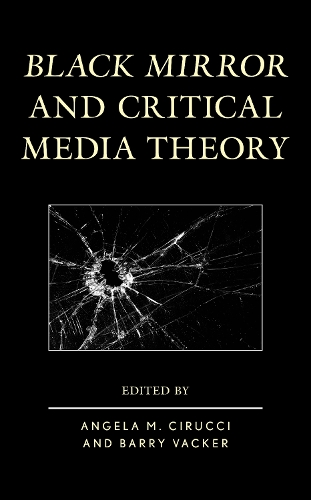
Black Mirror and Critical Media Theory
(Hardback)
Available Formats
Publishing Details
Black Mirror and Critical Media Theory
By (Author) Angela M. Cirucci
Edited by Barry Vacker
Contributions by Michael Mario Albrecht
Contributions by Osei Alleyne
Contributions by Francois Allard-Huver
Contributions by Fernando Gabriel Pagnoni Berns
Contributions by Derek R. Blackwell
Contributions by Angela M. Cirucci
Contributions by Sarah J. Constant
Contributions by Mathieu dAquin
Bloomsbury Publishing PLC
Lexington Books
31st October 2018
United States
Classifications
Professional and Scholarly
Non Fiction
791.4572
Physical Properties
Hardback
274
Width 159mm, Height 229mm, Spine 26mm
581g
Description
Black Mirror is The Twilight Zone of the twenty-first century. Already a philosophical classic, the series echoes the angst of an era, a civilization and consciousness fully engulfed in the 24/7 media spectacle spanning the planet. With clever plots and existential themes, Black Mirror presents near-futures where humans collide with technology and each othertomorrows that might arrive in five years or five minutes. Featuring scholars from three continents and ten nations, Black Mirror and Critical Media Theory is an international collection of critical media theory applied to one of the most intellectually provocative TV shows of our time and the all-too-real conditions that inspire it. Drawing from thinkers such as Michel Foucault, Jean Baudrillard, Guy Debord, Marshall McLuhan, and Paul Virilio, the authors reverse-engineer Black Mirror by probing the ideas, meanings, and conditions embedded in the episodes. This book is organized around six key topics reflected and explored in Black Mirrorhuman identity, surveillance culture, spectacle and hyperreality, aesthetics, technology and existence, and dystopian futures.
Reviews
Black Mirror is a television program made to think with and, even to the casual viewer, it feels as though the stories plumb unseen depths at the intersection of human nature and the cutting edge of technology. Coming to grips with the deep currents of the show is difficult for the solo viewer, but Black Mirror and Critical Media Theory provides a set of maps for exploring this media text. Reading the collection is a bit like watching the show with a group of fans who share an interest in the structure of human culture. And like the show itself, each chapter stands well on its own but together they support a strong collection of thematic analyses that pull on the threads of ideas that run through each of the seasons of Black Mirror. Whether read by an interested fan or in the context of a course, there is something for every reader within this collection. -- Alexander Halavais, Arizona State University
Nowhere in contemporary popular culture is the near future more scary or visceral or than Charlie Brooker's dystopian series Black Mirror, and nowhere has that vision been more widely scrutinised than the wide-ranging and razor-sharp chapters in Cirucci and Vacker's collection. From the excesses of social media consumption to the panopticon of pervasive surveillance, Black Mirror and Critical Media Theory combines offers a range of theoretical lenses to understand and frame the immanent and pressing questions that Black Mirror so disturbingly raises. -- Tama Leaver, Curtin University
Author Bio
Angela M. Cirucci is assistant professor of media studies at Kutztown University. Barry Vacker is associate professor in the Klein College of Media and Communication at Temple University.
